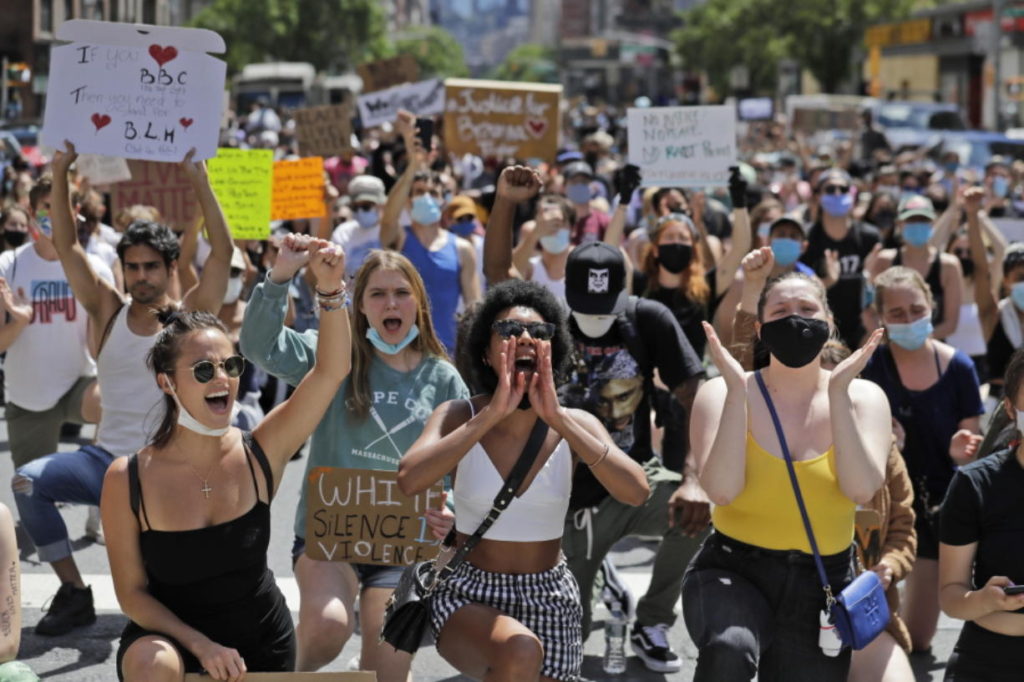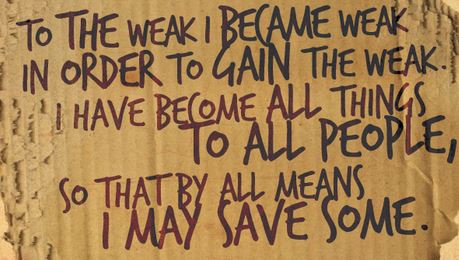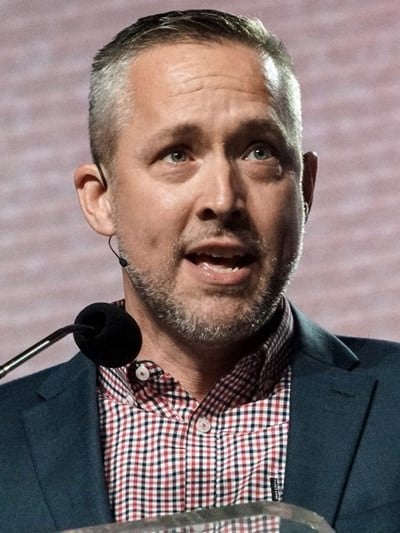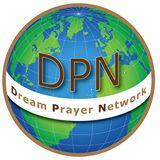
Ironically, the same young people our churches are trying to reach are at the forefront of protests demanding liberty and justice for all Americans.
He arrived at the church convention site early enough to get his wife comfortably situated in their room at the conference hotel. Then it was off to the auditorium.
He peeked at the conference program and saw the theme, “A House Divided.” Peter was not looking forward to this. He knew what was coming.
Peter took his seat and then reflected. He wondered why social issues kept threatening to derail the church?
He and the other apostles had just settled the dispute about Hebrew widows receiving favor over Grecian widows in the distribution of food. (Acts 6:1-7)
That issue with the widows was minor compared to the Gentile controversy which was about to be debated.
Peter was present because he knew the problem was not going away on its own.
Jewish priests who became Christians started the controversy by insisting that Gentile believers must be circumcised in order to be saved.
A heated debate took place once the conference got underway, but Peter and Paul presented powerful testimonies. They persuaded the assembled that Gentile believers did not need to be circumcised to be saved. (Acts 15:6-22)
The controversy was resolved through dialogue and active listening. The divided church was restored to unity, but a complex problem remained unresolved.
How do you get historical enemies -Jews, Samaritans, and Gentiles- to worship together in churches?
Paul spent the rest of his life addressing issues like this. He wrote multiple letters -Epistles- to help an increasingly diverse church move forward in a hostile world.
His methodology was simple and effective. He denied himself and identified with the customs, and social norms of the people he was trying to reach.

“I have become all things to all men that I might by all means save some. Now this I do for the gospel’s sake, that I may be partaker of it with you.” (1 Corinthians 9:22b-23)
Even the best of us stumble trying to overcome prejudices. Peter fell short. He stopped eating with Gentile believers because he feared the Jews. Paul rebuked him. (Galatians 2:14)
Peter knew better, but old habits are hard to break especially under peer pressure.
Ever since Jesus prayed for unity among His followers in the Garden of Gethsemane, all the forces of hell determined that His prayer would never come to pass:
“I do not pray for these alone, but also for those who will believe in Me through their word; that they all may be one, as You, Father, are in Me, and I in You; that they also may be one in Us, that the world may believe that You sent Me. (John 17:20-21)
Jesus knew that A Divided House is Costly. He was the One who said, “a house divided against itself cannot stand.” (Mark 3:25).
Fast forward to a man running for senate in the state of Illinois in 1858 who quoted from scripture:

“A house divided against itself, cannot stand. I believe this government cannot endure permanently half slave and half free…I do not expect the house to fall but I do expect it will cease to be divided. It will become all one thing or all the other.” -Abraham Lincoln, “House Divided” Speech, 16 June 1858.
Lincoln’s “house” metaphor referred to the nation, and it aptly described the church as well.
By the time Lincoln delivered his speech, the three largest Protestant denominations in America -the Methodists (1843), Baptists (1845), and Presbyterians (1837)- divided over the issue of slavery. So what?

The Methodist Church was the largest organization in America. It was a strong cord linking the nation together before the split in 1843.
Ironically, John Wesley, founder of the Methodist Church strongly opposed slavery. He called for slave owners to repent and free their slaves in 1773 in a pamphlet entitled, Thoughts on Slavery.
It is essential to understand that these churches divided years before South Carolina became the first state to secede from the Union in December 1860.
The church to a large degree set the conditions for the American house to fall. Kentucky Senator Henry Clay rightly declared that the church splits were “the greatest source of danger to our country.”
During the time of the Civil War, 94% of all churches in the south were a part of the three denominations that supported the enslavement of 4 million black Americans. One out of every seven Americans was a slave during this time.
The moral authority used by the southern churches to justify slavery was the Word of God. Allow that to sink in for a minute.
The Civil War claimed the lives of 620,000 Americans. The end of the war did not grant the former slave’s full citizenship or access to membership in southern churches.
The wheels of justice grind slowly. It took the Southern Baptist Convention 150 years to issue an apology for its stance on slavery back in June 1995. https://www.npr.org/templates/story/story.php?storyId=112329862
At the time of this apology, the SBC also asked forgiveness of African-Americans for failing to support the Civil Rights Movement.
Things appear to be changing with the SBC moving forward based on a statement made by SBC president J.D. Greear, on 9 June 2020.

Greear called for SBC members to declare: Black Lives Matter, and he denounced using All Lives Matter. https://www.foxnews.com/us/black-lives-matter-southern-baptist
Many where shocked when the president of the largest Protestant Christian denomination in America made this statement.
It is interesting to note that prior to Greear’s statement, the SBC had seen the sharpest decline in membership in the last 100 years.
The SBC is not alone. Church attendance across Christian denominations has declined sharply in just the last ten years and especially among young people.
Where is the church? Young people are interested in investing their lives in something larger than themselves. Where is the church?
Peter understood centuries ago that social problems do not resolve themselves. Paul taught us to deny ourselves and relate to those different from us for the sake of the gospel.
The church in America owns some responsibility for slavery and the bloodshed of the Civil War. Likewise, it shares some responsibility for the unrest in our streets today.
It may be uncomfortable, but our churches must deal with social injustice in America NOW.
Peter, Paul and those assembled at the Council of Jerusalem demonstrated that unity can be achieved through dialogue and active listening.
I applaud the bold move by J.D. Greear. I hope that other church leaders will follow his example.
A Divided House is Costly. The price is too steep to pay. Let this be our finest hour and our defining moment for the sake of the gospel. God Bless! Press On!! Kevin

